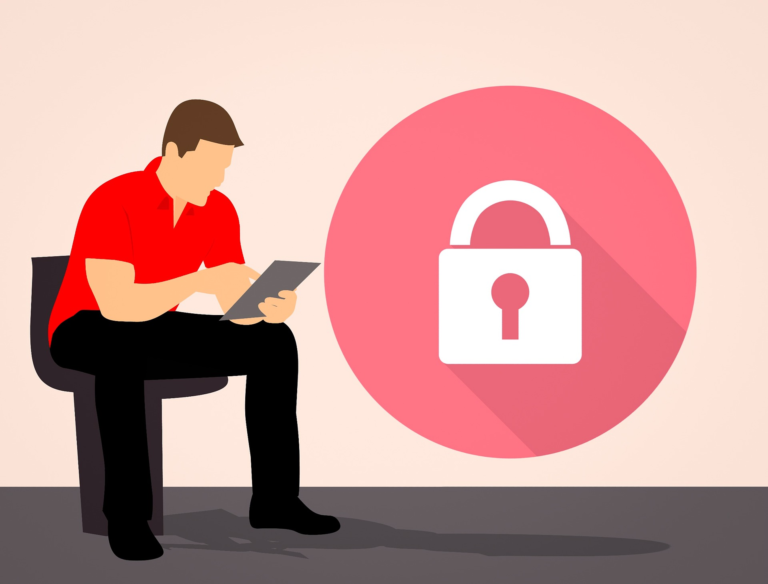Data Security also as information security (IS) or computer security refers to protection of the digital data from the unauthorized access and destructive forces like such as a cyber attack or a data breach.
Data Security is an essential aspect of IT for organizations of every size and type.
Importance Of Data Security:
Data Security refers to make the data unreadable to the unauthorized access, this can be achieved via Encryption: refers to a process of encoding a message or information in such a way that only authorized users can access it and this can be achieved in several ways.
The main aim in Data Security is that Only Sender and Receiver should have access the data.
The most popular technologies in Data Security are:
1. Disk Encryption
Is a technology which protects the data by converting it into unreadable code that cannot be deciphered easily by unauthorized people.
2. Data Masking
Also known as data obfuscation is the process of hiding original data with random characters or data.
3. Software and Hardware Encryption
Software Encryption encrypt the data to protect it from theft. Hardware Encryption solutions can prevent the read and write access to data and hence offer very strong protection against tampering and unauthorized access.
4. Backups
Backups are used to ensure data which is lost can be recovered from another source. It’s essential to keep a backup of any data in most industries and the process is recommended for any files of importance to a user
5. Data Erasure
Data erasure is a method of software based overwriting that completely destroys all electronic data on a hard drive or other digital media to ensure that no sensitive data is lost when an asset is retired or reused used to ensure data which is lost can be recovered from another source. It is considered essential to keep a backup of any data in most industries and this process is recommended for any file which is of importance to a user.
Why Is Data Security Important To Everyone?
There is a misconception that the Cyber Attacks happens only in government, big organizations and businesses. This is not True, your mobile phone, tablet, Laptops can also be victim of Cyber Security.
Usually the attackers target the common users sensitive information like the credit card details, passwords, etc.
Hence, It is said that the Cyber Attacks are getting bigger and better day by day
What You Can Do?
Your awareness is your security. Here, are the essential practices you need to start doing today to protect yourself from hackers:
-Never click on spam or a suspicious email. Verify or check an email or a link carefully before opening any attachment.
-Don’t fall prey to offers, such as “iPhone X at just $10” or “Congratulations! You won a car. Open attachment to claim now.”
-Never download any untrusted or pirated software or application.
-Don’t download fake security software.
-Don’t make any online transactions if the website is not secured. Check HTTPS or green address bar before making any payment or typing in any sensitive details
-Use two-factor authentications.
-Don’t share your OTP or atm pin information to strangers.
How Do We Keep Our Sensitive Data Safe and Secured?
1. Regularly update your security
-Regular Updates are key to keeping Cyber Attacks at the bay as older software will not be able to protect you computer or data from the latest virus and the methods used by hackers.
To keep up with the most recent threats, you will need to make sure you have all the latest updates on your computer as well as on phone.
2. Never open emails from unknown Sources
– You need to be alert while scrolling through the emails. Be aware of the unknown email address and attachments. If the email is from an organization like your bank, you can normally forward it on to the company and request that they confirm if it’s genuine.
3. Be wary when using public wifi
– Joining a public Wi-Fi network puts you at risk. Hackers can position themselves between you and the access point, meaning you’re sending your data directly to them. This is an increased risk for those who work remotely, or travel for business.
4. Backup Your Data
– One of the best ways to protect your data is keep your computer backed up. That way, if you’re the victim of theft or something happens to your computer or laptop, you have a duplicate copy of everything.
5. Protect it with a password
-Following these password security tips, you should be able to protect data and deter an attack
*Ensure that your password contains at least 8 characters
*Use both upper and lower case letters
*Combine both numbers and symbols in your password
*Don’t use anything that could be easily linked to you such as names, birthdays, telephone numbers etc.
*Use different password for each of your online accounts
6. Take care of the physical data
-We may be in a digital world, but there is still a place for printed files and documents in the workplace. To make sure no one gets their hands on this precious information, be sure to check everything for sensitive data before you discard it.
References:
- https://en.wikipedia.org/wiki/Data_security
- https://www.whatvwant.com/what-is-data-security-and-its-importance/
- https://dzone.com/articles/why-is-data-security-important-for-everyone
- https://www.staples.co.uk/knowledge-centre/how-to-tips/10-steps-to-keeping-your-data-safe.html
- https://dzone.com/articles/why-is-data-security-important-for-everyone
